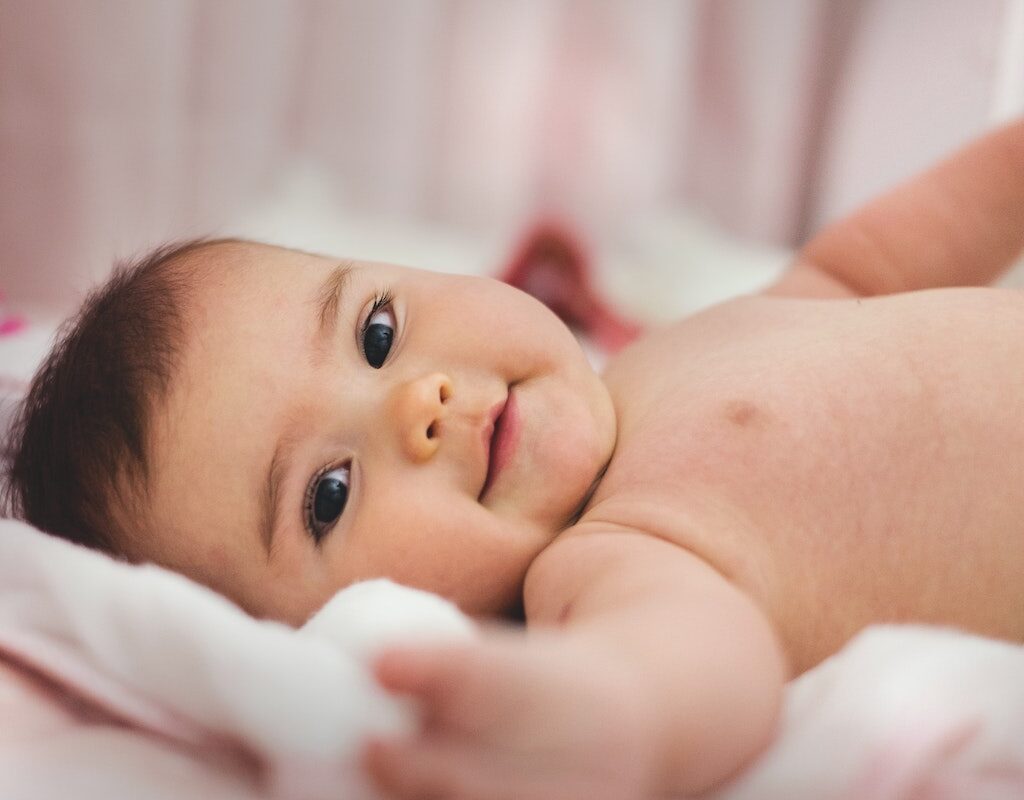
Have you ever wondered why your baby’s lips appear black, brown, blue, dry, red, or overly pink? Are they chapped? Your baby’s lips can tell a lot about their health. There are several reasons for this discolouration. Did you know that leftover food can be one of the factors for this colour change on their lips?
It is unlikely to cause any signs of pain or discomfort, but parents should monitor closely to check if other symptoms are present. Occasionally, chapped lips are uncomfortable for a newborn, but this symptom does not cause any concern. However, chapped lips can suggest an underlying condition if other symptoms, such as an infection or dehydration, are also present.
Should you wipe your Baby’s lips after feeding?
Yes, we should wipe the baby’s lips after feeding. As we all know, breast milk is beneficial for the skin and health of your baby and generally causes no issues when left on their lips. However, sometimes for some babies, breast milk residue can cause discolouration (darkening) of the baby’s lips over time. So it’s always recommended to wipe the baby’s lips with a soft cloth after feeding.
How Do You Clean Baby Lips After Feeding?

Keeping your baby’s mouth clean is a practice of good hygiene, not only for their lips but also for their mouth, including their gums and tongue. This habit will help remove the bacteria and prepare your baby for a good brushing habit when they are old enough. Good oral hygiene is the key to keep your baby’s lips and gums healthy. To clean your baby’s lips and mouth, first of all, make sure your hands are adequately cleaned. Wrap a clean gauze, cotton, and soft cloth around your finger and dip it in water. Then gently wipe your baby’s upper and lower gum pad one time and their lips. It is not necessary to wipe their gums each time after feeding; just their lips are enough.
Why do Baby Lips Change Color?
Black lips: This is very normal in infants during the first few days after birth. It is not always a cause for concern. Black lips could be simply because the baby may be sucking too hard while breastfeeding, bottle-feeding, or sucking on a pacifier they should change back to their original color in no time.

For some babies, the leftover milk could give a blackish tint to their lips. So it’s better to wipe their lips after feeding. The darkening of the lips of the baby can also be due to the colour of their skin. Nipple cream is another thing that can cause a blackish tint to your baby’s lips. If you use nipple cream, gently wipe it off before feeding your baby. This can be a little painful, but the thick ointment can be left behind on your baby’s lips if you do not wipe it off. It acts as a magnet to collect milk residue and dirt.
Cyanosis (blue or purple lips): This could be because of the lack of oxygen and is a potentially severe issue. The lips stay this colour, and your baby seems to become less responsive. This effect can also be seen on the legs. If blue or grey lips appear along with other warning signs, such as shortness of breath, then your baby requires emergency medical attention.
Very Red: It is common for a newborn’s lips to appear more dry and red than an older baby’s, but this is unlikely to cause any signs of pain or discomfort. Suppose chapped lips seem to bother a baby. In that case, parents can try out a range of gentle, effective home remedies to relieve this symptom, such as rubbing lanolin on their lips, dabbing breast milk on their lips, applying oils or petroleum jelly, using baby-safe lip balm, using a humidifier etc.

How to protect Baby lips?
- Try using a humidifier if necessary to keep the house at a consistent ambient temperature; this will help prevent the air from becoming too dry.
- Ensuring your baby is wearing weather appropriate clothes when going out can protect them from the cold, sun, and wind.
- Use baby-safe lotions and lip balm, or apply coconut oil or dab breast milk to avoid dryness.
- Keep your baby hydrated by feeding a newborn regularly and increasing feed-in in hot weather.
Your baby’s lips can give you many clues about their health. Prevention is often the best treatment strategy. For example, it is common for newborns to change their lip colour, and it is rarely a cause for concern, but its better to take home remedies to prevent them. Consult a doctor if your baby shows any other symptoms since each baby is different.

